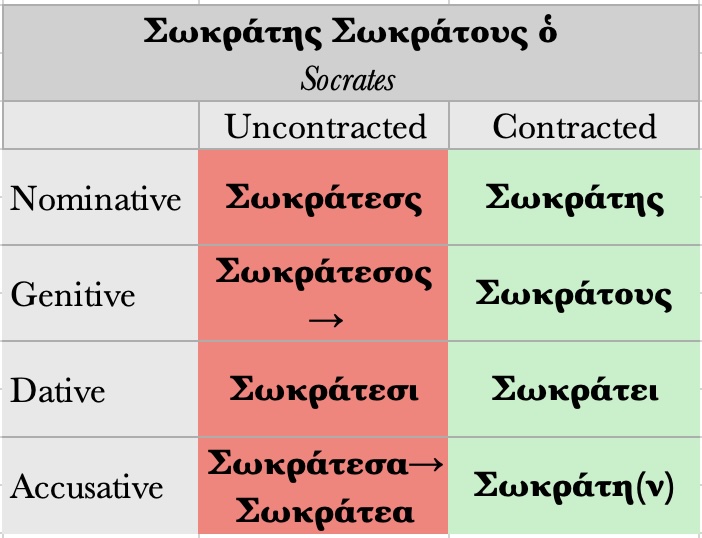23.13 As we saw in our discussion of the ATTIC FUTURE, an INTERVOCALIC SIGMA – i.e., a –σ– found between two vowels – often drops out, and the surrounding vowels contract. This process often occurs in 3rd Declension noun stems ending in –εσ once personal endings are added.
Nouns of this type are usually NEUTER. When masculine and feminine nouns of this type do appear, they are often proper names.
The name Socrates, Σωκράτης, Σωκράτους, ὁ, declines as follows (S 264, G 127). Note the following patterns:
- In the nominative singular, the loss of a sigma results in COMPENSATORY LENGTHENING, just as we see with the four –ρ stem nouns above.
- Regular and expected contractions occur in the oblique forms once the intervocalic sigma is dropped.
- Finally, in the accusative singular, a ν is added by many, though not all, authors.
For neuter nouns, recognizable patterns emerge.
- First, in the nominative and accusative singular, the stem –ες becomes –ος. Otherwise, all accent and contraction rules apply normally (S 264, G 127-128).
- Second, the accent is usually born on the ANTEPENULT of the uncontracted, inflected forms.
For example:
(cf. G 124)
Charts JPG






